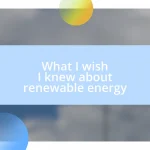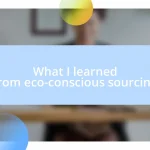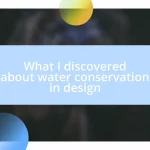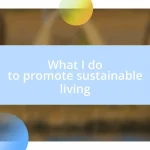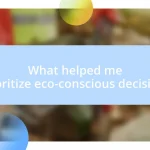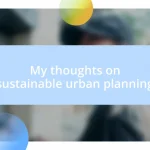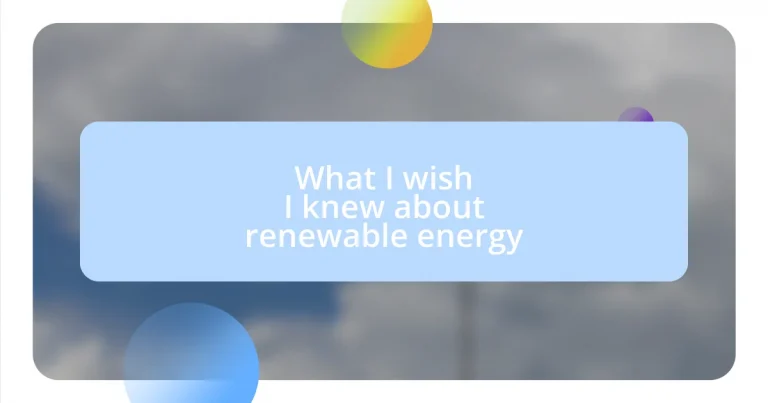Key takeaways:
- The diversity of renewable energy sources, such as solar and wind, highlights their potential to reduce reliance on fossil fuels and combat climate change.
- Common misconceptions about renewable energy, like expense and reliability, can deter adoption; educating oneself is crucial for embracing its benefits.
- Future advancements in technology, particularly AI and energy storage, alongside community engagement and policy support, are vital for the growth of the renewable energy sector.
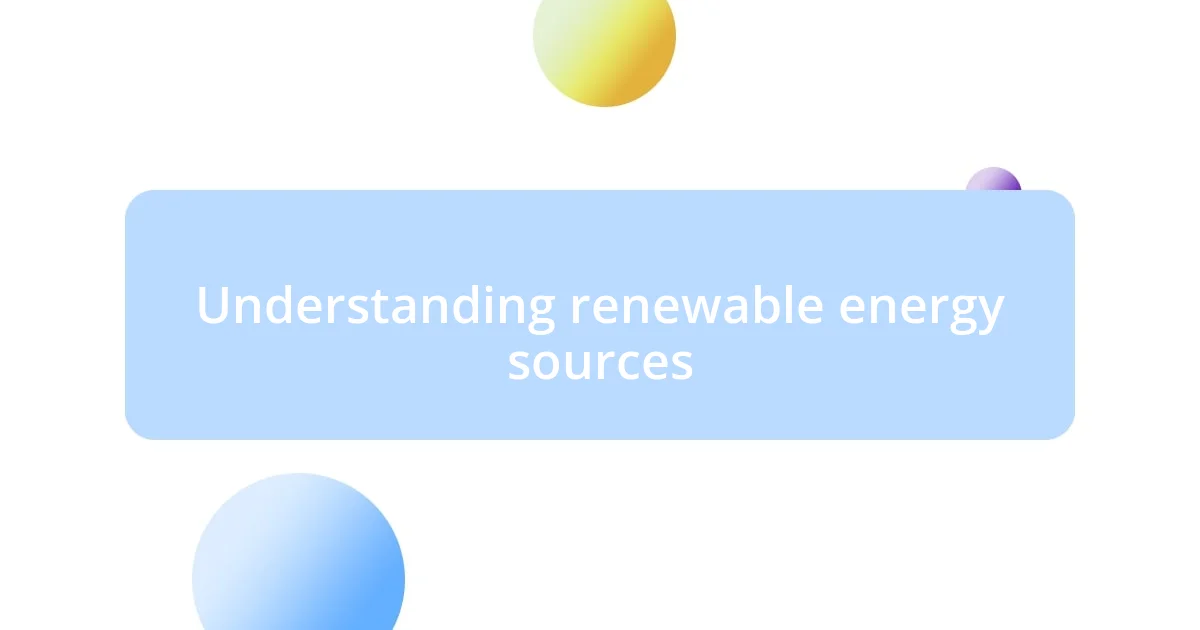
Understanding renewable energy sources
When I first began my journey into renewable energy, I was surprised to discover just how many diverse sources there are. Solar, wind, hydro, and geothermal are just a few, each with its unique benefits and challenges. It made me wonder—why are we not utilizing every single one of them to its fullest potential?
I vividly recall visiting a solar farm during a local community event. Standing there, surrounded by rows of gleaming solar panels, I felt this wave of hopefulness. It struck me how sunlight, an abundant resource, could power countless homes and businesses. This experience highlighted the incredible potential of solar energy, making me grateful for its role in our energy future.
Wind energy was another revelation for me. Watching those massive turbines sway gracefully in the breeze, I was reminded of how nature itself can provide clean power. Have you ever considered how wind, something we often overlook, can be harnessed to generate electricity? It’s a captivating thought that reinforces the idea that renewable sources can be both practical and sustainable.
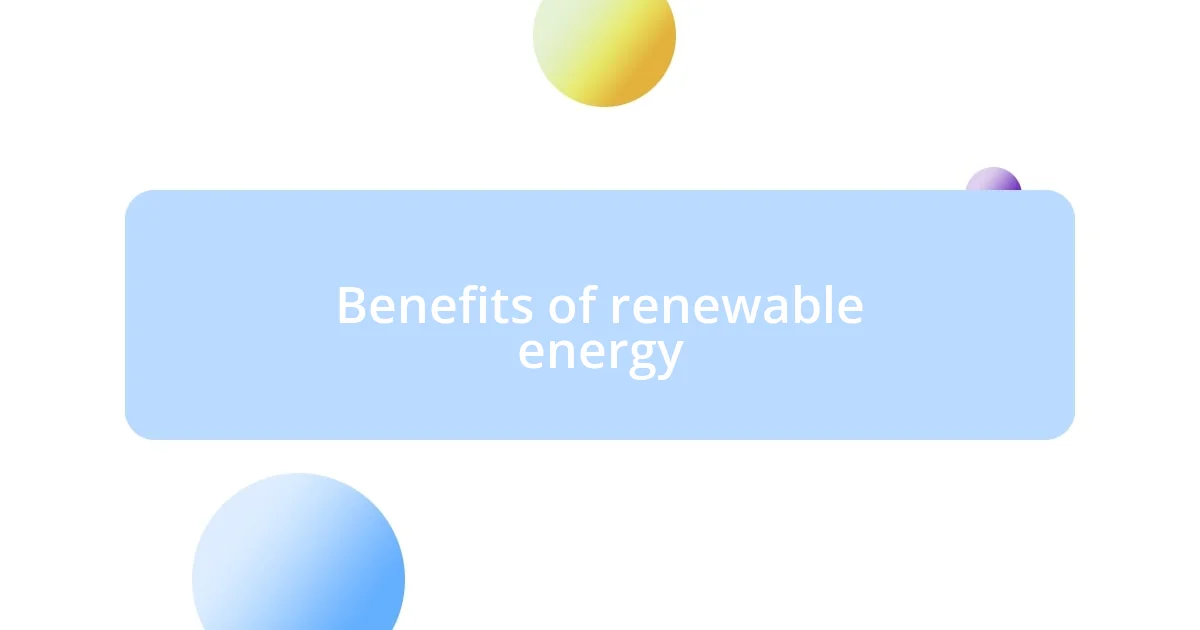
Benefits of renewable energy
One of the most significant benefits of renewable energy is its positive impact on the environment. Transitioning to cleaner sources reduces greenhouse gas emissions and diminishes our reliance on fossil fuels. I remember the first time I learned about how solar power could decrease carbon footprints. It made me feel empowered knowing that by embracing these technologies, we could leave a healthier planet for future generations.
Additionally, renewable energy creates jobs and stimulates local economies. I’ve seen communities flourish thanks to the growth of solar and wind industries. It’s inspiring to realize that as we invest in renewable energy, we’re not only fighting climate change but also boosting job opportunities. This dual impact makes the transition feel less like a sacrifice and more like an investment in our communities’ future.
Finally, renewable energy often leads to energy independence. I recall a conversation with a neighbor who installed solar panels on their roof; they expressed how liberating it felt to generate their own electricity. This shift toward self-sufficiency reduces the vulnerability associated with fluctuating fossil fuel prices and geopolitical tensions. It’s a practical benefit that resonates with anyone who appreciates stability and control.
| Benefit | Description |
|---|---|
| Environmental Impact | Reduces greenhouse gas emissions and dependence on fossil fuels. |
| Job Creation | Stimulates local economies by providing new job opportunities in renewable energy sectors. |
| Energy Independence | Enhances self-sufficiency and reduces vulnerability to fossil fuel price fluctuations. |
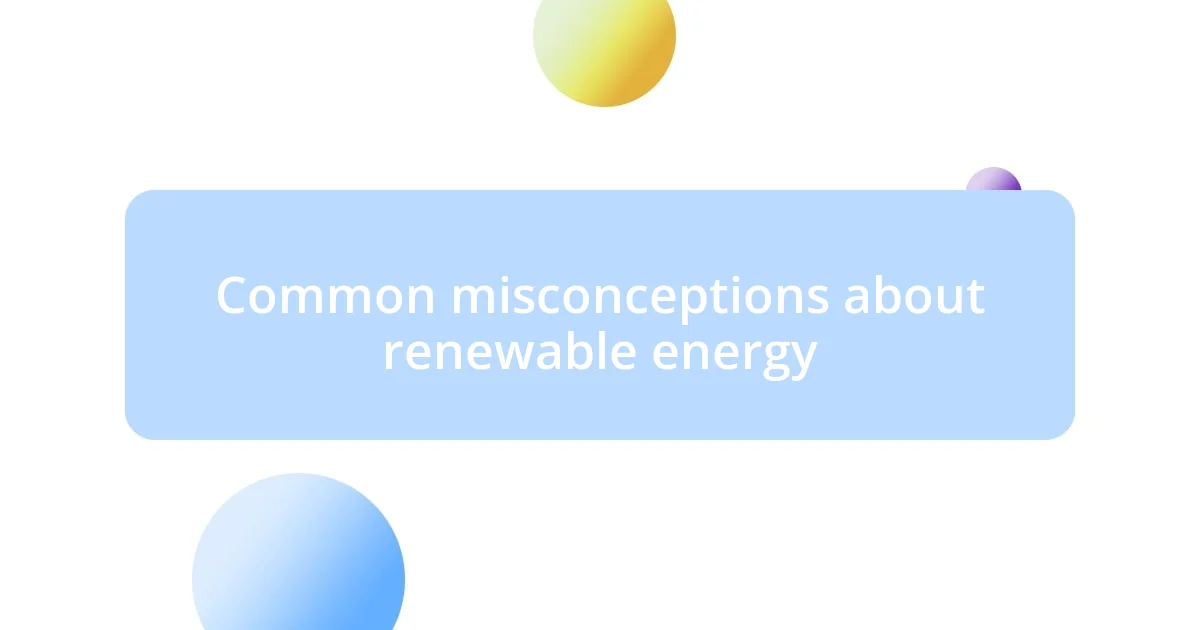
Common misconceptions about renewable energy
It’s interesting how many misconceptions still linger about renewable energy. I remember chatting with a friend who believed that solar panels only work on sunny days. When I explained that they can still generate electricity on cloudy or rainy days, he was genuinely surprised. This shows just how much misinformation exists, often deterring people from considering its benefits.
Here’s a list of some common misconceptions about renewable energy:
– Renewable energy is too expensive: While initial investments can be high, the long-term savings on energy bills actually make it cost-effective.
– Renewable energy isn’t reliable: In reality, advancements in technology, like battery storage, allow for considerable reliability even when natural conditions fluctuate.
– Solar panels harm the environment: Many solar manufacturers are now focusing on sustainability and creating panels that have lower environmental impacts than fossil fuels.
– Wind energy kills too many birds: Renewable energy practices are evolving, with many companies implementing strategies to minimize wildlife impact.
Each misconception I encounter reminds me of the journey we all have in understanding renewable energy. It’s about empowering ourselves with facts and exploring how these misconceptions prevent us from embracing a cleaner future.
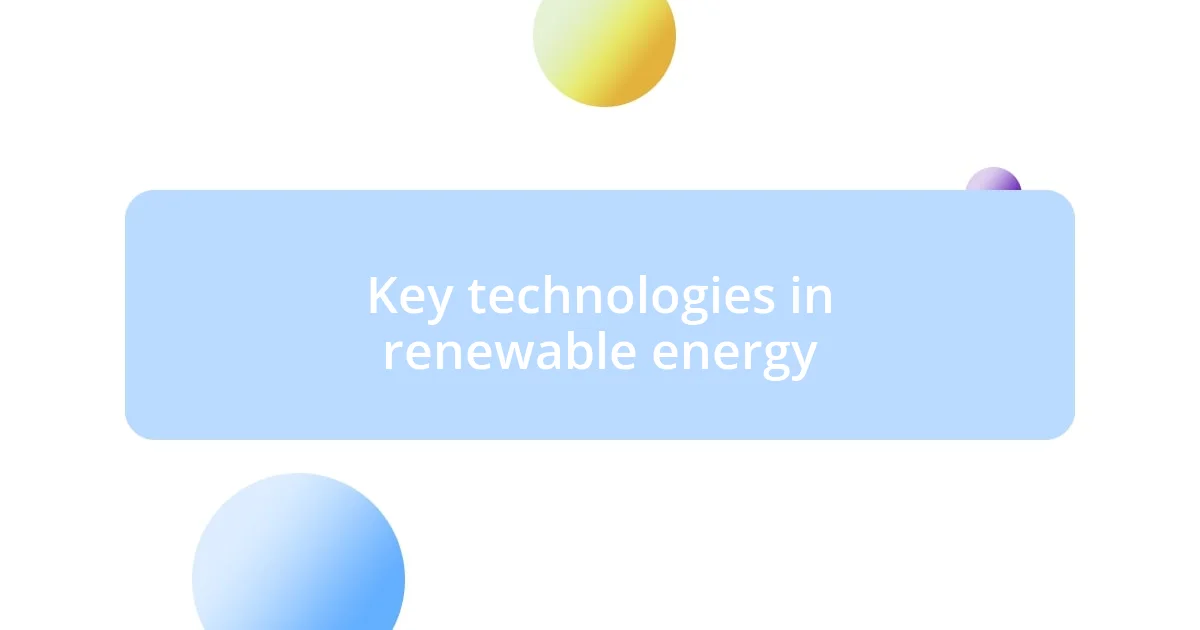
Key technologies in renewable energy
When I think about key technologies in renewable energy, solar power immediately comes to mind. I still vividly remember the first time I saw solar panels glistening on a neighbor’s rooftop. It struck me how these seemingly simple structures could harness the sun’s energy and transform it into electricity. This technology has become increasingly accessible, allowing more homeowners to partake in this sustainable shift.
Wind energy is another game-changer. I often reminisce about that road trip I took through the Midwest, where I was surrounded by expansive fields dotted with towering wind turbines. I couldn’t help but marvel at their silent strength, quietly generating energy while standing tall against the horizon. The innovation behind these turbines—how they capture wind and convert it into usable power—really emphasizes the beauty of merging nature with technology. It raises the question: how can we tap into even more natural forces to our advantage?
Then there’s the exciting development in energy storage technologies, especially batteries. I remember attending a tech conference where the advancements in battery technology were the talk of the town. The ability to store energy generated from solar or wind sources for use when conditions aren’t ideal is downright revolutionary. Imagine a world where every household could rely on clean energy day and night—what a shift that would be! In my experience, understanding these technologies not only fosters appreciation but also instills hope for a more sustainable future.
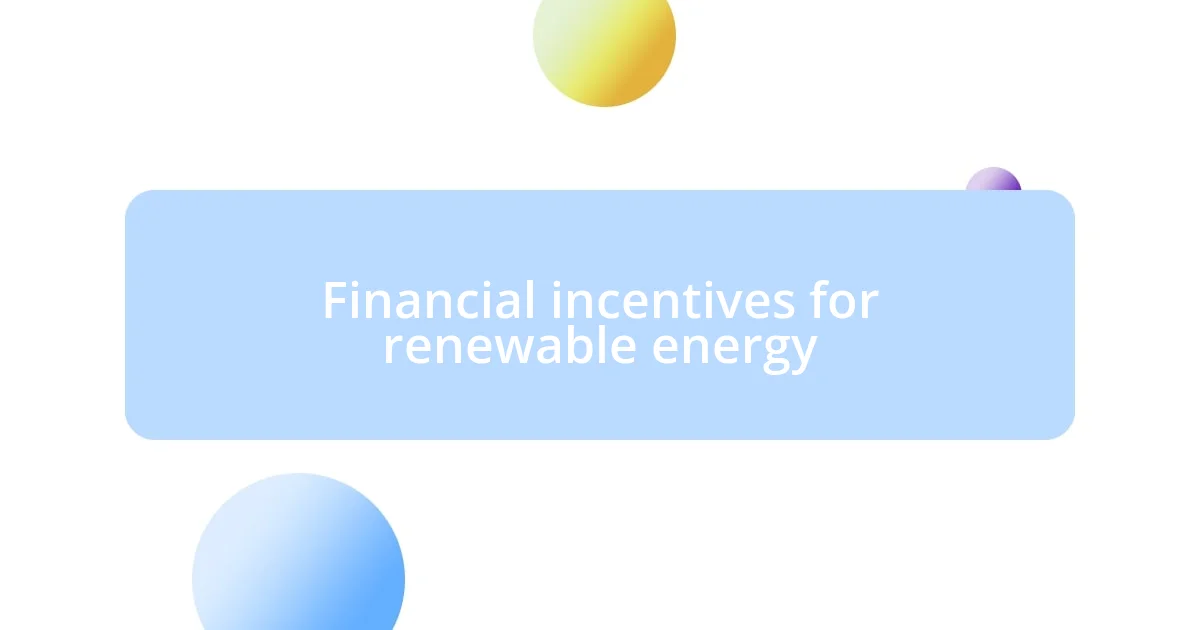
Financial incentives for renewable energy
When I started exploring renewable energy options, one aspect that surprised me was the variety of financial incentives available. For instance, I discovered that many states offer tax credits or rebates for solar panel installations. At that moment, it dawned on me how much these incentives could lower the initial costs, making it more feasible for someone like me to invest in a solar system.
I recall the excitement I felt when I read about net metering. It’s a concept that allows homeowners to earn credits for the excess energy they produce. I remember thinking how empowering it felt to know that my energy production could benefit not just my home budget but also contribute to the grid. Isn’t it fascinating how our contributions can have a broader impact?
Moreover, I learned about grants specifically aimed at promoting renewable energy projects. One night, I shared this discovery with a local environmental group I’m part of, and our conversation sparked innovative ideas on how to fund community solar initiatives. Sharing these financial support avenues opened my eyes to possibilities I had previously overlooked. So, what if we banded together to take advantage of these programs? The potential for collective impact is something that truly excites me!
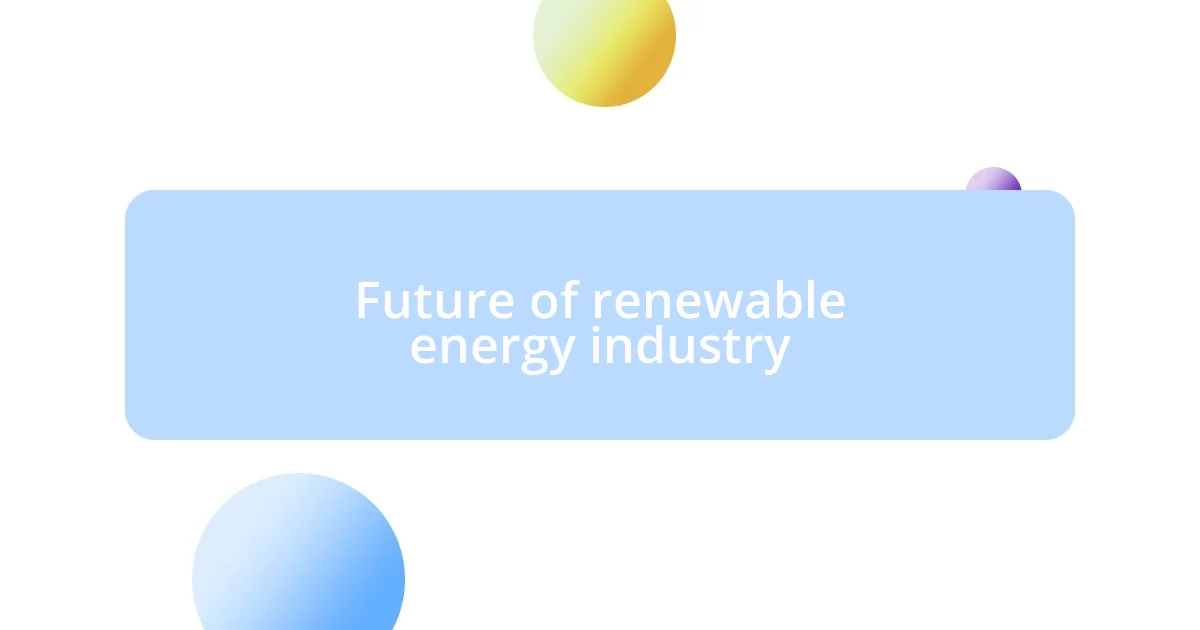
Future of renewable energy industry
It’s fascinating to think about where the renewable energy industry is headed. I often find myself dreaming of a future where clean energy sources dominate the landscape. There’s something invigorating about picturing sprawling solar farms and endless arrays of wind turbines powering entire cities, reducing our reliance on fossil fuels. Wouldn’t it be amazing to witness that kind of transformation unfold right before our eyes?
I remember chatting with a friend who works in tech about how artificial intelligence is set to revolutionize renewable energy management. He remarked on how AI could optimize energy distribution and usage, making systems more efficient than ever. Just imagine a world where energy consumption is fine-tuned automatically to fit demand—no more energy waste! It’s exhilarating to consider the possibilities that lie ahead, especially when these advancements dovetail with sustainability efforts.
Looking towards the future, I can’t help but think about the importance of public policy and community involvement. I once attended a local town hall meeting where residents engaged in discussions about zoning regulations for solar developments. It struck me how ordinary citizens can drive change and influence energy policies that favor renewables. Isn’t it inspiring to realize that your voice can help shape a greener world? As we all participate, we not only empower ourselves but also future generations who will inherit this planet.


